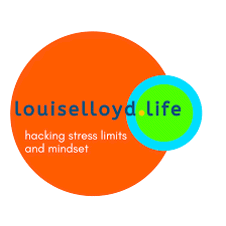Top tips for moving into lockdown ... again
Our friend and business partner, Louise Lloyd, recently shared these tips with her connections on how to move into lockdown again. We thought these were just too good not to share, so with Louise’s permission we have published her top tips for moving into lockdown again.
 Make managing your own internal state and wellbeing a priority
Make managing your own internal state and wellbeing a priority
If we learned one thing in the last lockdown, it’s that you really do need to be proactive in looking after yourself. It isn’t a luxury to do so, it’s what’s going to get you through it all and enable you to function in all of the other ‘do-ing’ you need to do. So many people feel ‘guilty’ for taking the time for self-care. Please don’t.
One of the most selfless things you can do for others is to look after yourself. When you look after yourself you are better to be around - it’s worth remembering that, next time you are guilt-tripping yourself about taking a break or saying ‘no’ to something to take care of your mental wellbeing.
Identify the nurturing things that help you to relax
We all have healthy and not-so-healthy ways of dealing with stress and difficult thoughts/feelings/emotions. Try to lean into the healthy ones and be on the lookout for the unhealthy ones creeping in.
For me, meditation and walking are my healthy options and they worked really well in the last lockdown. Watching my intake of wine is the thing I need to keep an eye on and I definitely drank too much during the last lockdown so I won’t be doing that this time. How about you? What healthy go-to tools helped you to relax last time? And what will you not repeat this time?
Try your best to get 7-9 hours sleep a night
Sleep is possibly the best thing we can do for our health on every level. If you do struggle to sleep, I highly recommend checking out Prof Matthew Walker’s book, Why We Sleep. It’s full of top tips on how to get a good night’s sleep, along with all the scientific evidence on why we should.
Feed your health
Care about yourself enough to want to give yourself the nutrients you need to thrive and cut down on the things that don’t help - like caffeine and sugar. Erratic blood sugar levels and caffeine-fuelled anxiety definitely won’t help you to maintain your peace. What traps did your diet choices fall into in the last lockdown? What could you choose differently this time? What healthy choices worked last time? Remember, it’s the small doable steps in the right direction that all add up.
Keep moving
What is the best way for you to exercise? Did you find a workable approach to this during the last lockdown? What did you enjoy? What worked? If you didn’t quite get into the exercise that you wanted to last time, how could you this time? I know I wanted to do more yoga than I actually did last time, so I’m going to do a bit more this time - even if it’s only 10 minutes a day. Especially after sitting in webinars all day, I know yoga helps.
It’s good to talk
Who are your go-to people to chat to? Despite all the talk about video call exhaustion from last time, video calling can be a great way to stay connected. Connect with people in a way that works for you. Do look out for any self-isolating withdrawal from others though, especially if you live on your own.
If you do live on your own and don’t speak to people on a daily basis through work, I recommend daily connection with someone, perhaps that’s scheduling in a phone/video call, connecting through online games or chat rooms, a virtual cuppa, or whatever way works best for you.
Take one day at a time
It might help to have a daily to-do list of things that you want to achieve, whether that’s work-wise or otherwise. Be realistic about what’s possible and if you are overwhelmed with too much to do, prioritise the most important things and get on with those, parking the things that can wait. A month might feel overwhelming, a day is doable - so just do that, today. And then do the same tomorrow. That’s how lockdown becomes doable.
Address any issues that arise
Don’t bottle things up. When a problem or issue arises, deal with it in an ongoing way. This will help you to sleep at night and stop you getting bogged down with carrying things that you don’t need to.
Focus on what’s in your control
It sounds obvious, but so often the things that we over-think are the things that are beyond our control. If you notice your thoughts gaining momentum on things beyond your control, take a few deep breaths and keep coming back to what is in your control. In the wise words of Theodore Roosevelt, “do what you can, with what you have, and where you are."
Breathe
Taking a few deep conscious breaths can be life changing. Every time you feel stressed/anxious/depressed/unfocused/overwhelmed/upset take 5 to 10 deep conscious breaths. Try inhaling through the nose for a count of 4 and exhaling through the mouth for a count of 6.
Practice a longer daily breath awareness mindfulness meditation practice. The app, Headspace is a good place to start but you can also find hundreds of free led practices on YouTube and other free apps. The way we breathe is intrinsically linked to our nervous system so if you really want to turn down your fight/flight reactivity and feel more settled, the breath is a great place to start.
Remember, this won’t last forever
Things will change. All the things that aren’t possible now will be possible again. Remember that.
Gratitude
Despite all the things we can’t do and have, notice all that you are still grateful for. Before you go to sleep at night, think of 3 things you have been grateful for that day and acknowledge something you did well.
Kindness and compassion
As the normal human beings that we are, it is normal to have a whole range of both positive and negative thoughts, feelings and emotions. We all have good days and not so good days. Try to have patience with yourself and others. Try not to judge surface appearances of another’s behaviour. No matter what is going on in life, things are always better when there is kindness and compassion. Often, we lack that for ourselves though, so start there. Be kind to yourself. Have compassion for you, and how you feel. And then extend that to others, as best you can.
Above all though, remember that all thoughts, words, choices, and actions have an effect. They are either taking us in a direction that is helpful, or they are taking us in a direction that isn’t. Wrap yourself in enough love and care that you encourage yourself to think, speak, and act in a way that demonstrates the love that you are.
Don’t beat yourself up. If you need help, ask for it. You are doing the best that you can. We all are.
 About Louise Lloyd
About Louise Lloyd
Louise Lloyd is a mindset and wellbeing coach who has been helping people to hack stress, limits, and mindsets for over 20 years. Through speaking engagements and coaching, she helps people to stop stress and fear getting in the way of them realising their potential. She is passionate about helping people to manage their own internal state so they can live healthier happier lives.
Louise will be posting regular snippets of tips, tools and encouragement on LinkedIn, YouTube, and Facebook throughout the month so please follow and share.
Buy Louise’s book on Stress Hacking HERE.



